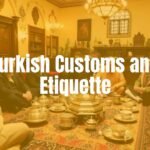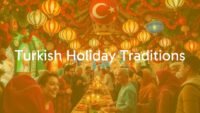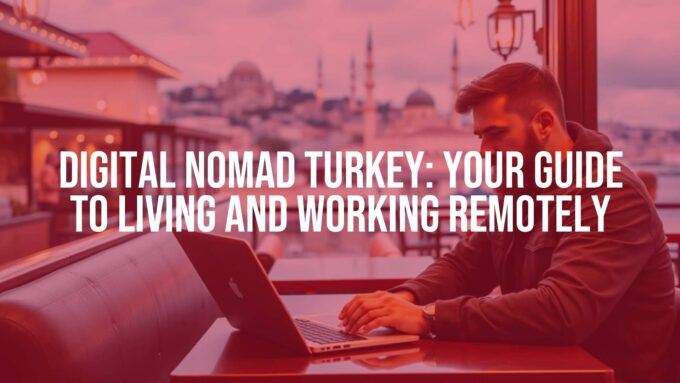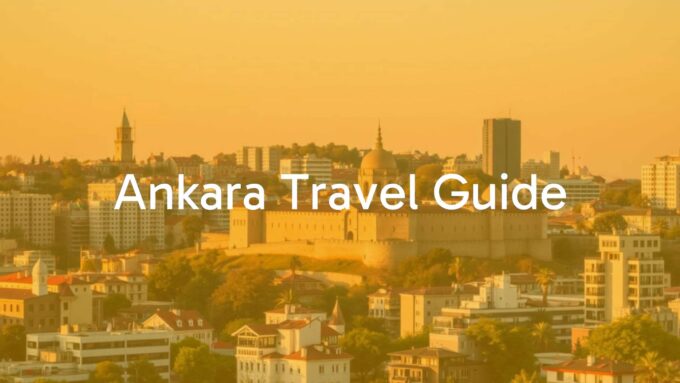Turkish holiday traditions are full of life and color, shaped by years of history, faith, and cultural mixing. They are much more than just marked dates-they show the strong identity and community spirit of the Turkish people. Whether celebrating at home with family or out in decorated city streets, each holiday brings people together for fun, reflection, and support for one another. These events give everyone a real sense of what life and values are important in Turkey.
If you want to really get to know Turkey, learning about these holidays is important. They help explain how historical events, religious beliefs, and social values are still present in everyday life. Whether you live in Turkey or are just visiting, taking part in celebrations is a great way to feel closer to the culture and people of the country.

What Makes Turkish Holidays Special?
Turkish holidays are all about gathering together, respecting elders, and sharing with others. During these times, people slow down from their usual busy routines to spend time with their families, connect with their past, and take part in meaningful traditions. While holidays change a little from year to year, the main values-like kindness, family, and togetherness-stay the same.
Traditions often include certain foods, music, and activities that have been kept alive for many generations. These celebrations bring people back to their roots, showing the different groups and eras that shaped Turkey’s past. Because of this mix, Turkish holidays have their own special style that is both old and new at the same time.
Important Values and Customs in Turkish Holidays
Hospitality, giving, and family togetherness are at the center of Turkish holidays. Houses are cleaned carefully, decorated, and special foods are cooked to welcome guests. Visiting older relatives and neighbors is especially important, showing respect and keeping social ties strong. Children are a big part of the fun-they often receive treats and gifts, which reminds families to keep caring for the younger generation.
During the holidays, it’s common to greet others with homemade sweets like Baklava, Turkish Delight (Lokum), and Helva. This sharing helps keep people friendly and close. What’s more, cities often hold public celebrations with lights, music, and performances, inviting everyone to join in.

Differences Between National and Religious Holidays in Turkey
Turkey celebrates both national and religious holidays, and each type has its own meaning. National holidays remember important events in Turkish history, such as the start of the Republic. These holidays are on the same date every year and usually include ceremonies, parades, and patriotic events.
Religious holidays come from Islamic traditions and are based on the lunar calendar, so they happen about 11 days earlier each year. These holidays are centered around prayer, charity, and being together as a community. National holidays focus on the country as a whole, while religious holidays put more attention on family and faith.
List of Major National Holidays in Turkey
| Date | Holiday | Main Activities |
|---|---|---|
| October 29 | Republic Day | Parades, fireworks, visits to Atatürk monuments, speeches |
| April 23 | National Sovereignty and Children’s Day | Children in parliament, festivals, performances, special events for kids |
| August 30 | Victory Day | Military parades, flag displays, ceremonies at Anıtkabir |
| May 19 | Youth and Sports Day | Relays, sporting events, flag-carrying ceremony |
Details of National Holidays
- Republic Day (October 29): This day celebrates when modern Turkey was founded in 1923. All over the country, you will see parades, flags, music, and fireworks. People also remember Atatürk, the country’s founder, by visiting monuments and his tomb in Ankara.
- National Sovereignty and Children’s Day (April 23): This holiday marks the start of the Turkish Parliament in 1920. It’s special because it’s also dedicated to children. Kids take over the parliament and other positions for the day, and there are festivals full of singing, dancing, and games.
- Victory Day (August 30): This day remembers the Turkish win in the Battle of Dumlupınar in 1922, which ended the War of Independence. Military parades and speeches are held, with people honoring Atatürk and the military.
- Youth and Sports Day (May 19): This holiday celebrates Atatürk’s landing in Samsun in 1919, which started the independence movement. There are sports events and ceremonies where a flag from Samsun is brought to Ankara. Young people and their achievements are at the center of the celebrations.

Main Religious Holidays in Turkey
| Name | When Celebrated | Main Traditions |
|---|---|---|
| Ramadan (Ramazan) | Month from the Islamic calendar | Fasting, extra prayers, charity, meals with family at sunset (Iftar) |
| Ramadan Feast (Şeker Bayramı/Eid al-Fitr) | 3 days after Ramadan | Prayers, visiting elders, giving sweets, charity, new clothes |
| Feast of Sacrifice (Kurban Bayramı/Eid al-Adha) | 4 days, about 2 months after Ramadan | Animal sacrifice, sharing meat, charity, family gatherings |
Details of Religious Holidays
- Ramadan (Ramazan): This is a month of fasting for Muslims. People wake up early to eat before dawn, fast until sunset, and then break their fast with special meals (Iftar). Drummers may walk the streets in the early morning to wake people up for their pre-dawn meal. Many places are decorated with lights, and special messages are hung between mosque minarets.
- Ramadan Feast (Şeker Bayramı): Also called Eid al-Fitr or Sugar Feast, this marks the end of Ramadan. People wear their best clothes, visit family, give children sweets or money, and share food with the poor. Giving to charity is an important part of this holiday.
- Feast of Sacrifice (Kurban Bayramı): This is the most important religious holiday, lasting four days. People who can afford it sacrifice an animal, usually a sheep, and share most of the meat with relatives and the poor. Families visit each other, and big meals are prepared.

Other Islamic Nights and Minor Holidays
- Laylatul-Qadr (Night of Power): The night the Quran was first sent down, celebrated during Ramadan, often with prayers and recitation.
- Laylatul-Bara’ah (Night of Record): Believed to be the night when destinies are set for the coming year.
- Laylatul-Mi’raj (Night of Ascension): Remembers Prophet Muhammad’s spiritual journey to heaven.
- Mawlid al-Nabi (Prophet’s Birthday): Celebrated with gatherings, readings, and sometimes special foods.
Regional and Seasonal Festivals
- Hidrellez (May 5): Welcomes spring with outdoor celebrations like picnics, bonfires, and wishing rituals. People make wishes for health and luck.
- Nevruz (March 21): The traditional new year for some cultures, celebrated at the spring equinox. Includes music, dance, decorated eggs, and bonfires.
- Kırkpınar Oil Wrestling (Edirne): Ancient wrestling matches where contestants are covered in oil. Attracts large crowds and is a big part of Turkish culture.
- Camel Wrestling Festival (Aegean region): Male camels wrestle while crowds enjoy food and festivities.
- Mesir Paste Festival (Manisa): People gather to catch pieces of a sweet spice paste thrown from a mosque, remembering an old legend about healing and good health.

Common Holiday Customs and Social Rituals
- Visiting Elders and Neighbors: Especially during religious holidays, younger people visit their elders, sometimes kissing their hands and receiving blessings or small gifts. These visits also extend to neighbors, keeping the community close-knit.
- Sharing Sweets and Gifts: During holidays like Şeker Bayramı, homes are filled with traditional desserts to serve guests. Small gifts and money may be given to children.
- Special Foods: Holiday meals are important. For Iftar during Ramadan, or feasts after animal sacrifices, families prepare and share dishes that are often only made at these times. Foods might include soups, pilafs, kebabs, sweets, and for New Year’s Eve, roast turkey.
- Decorations and Celebrations: Streets and squares in big cities are decorated with lights, Turkish flags, and banners on national holidays. Mosques are often lit up with special lights during Ramadan. Public concerts and firework shows are also common.

How Turkish Holidays Affect Everyday Life
- Closures: Most schools, banks, government offices, and many businesses close during national and religious holidays. Some services may even close for half a day before longer holidays, so it’s helpful to plan visits and errands ahead.
- Travel and Family Visits: Holidays are prime times for family gatherings, and many people travel across the country. Roads, buses, and trains can be packed, and reaching certain destinations can take much longer than usual.
- Economic and Social Impact: Shops selling sweets, clothing, or gifts experience a boost, but others may slow down or close. Charity work and giving to the less fortunate becomes more common, especially on religious holidays. At the same time, some holidays may also include demonstrations or rallies, mainly in big cities.
Minority and Non-Muslim Holiday Traditions in Turkey
- Christian and Jewish Communities: Even though Turkey is mostly Muslim, Christian and Jewish groups still celebrate their own holidays, such as Christmas, Hanukkah, and Passover. These holidays are usually marked in homes or places of worship. In some cities, you may see Christmas trees or special lights, especially around the New Year.
- Intercultural Moments: During holidays, there are often chances for people of different backgrounds to join in or learn about one another’s traditions. For example, the festive mood around New Year’s brings everyone together, no matter their religion.
Tips for Visitors Experiencing Turkish Holidays
- Be Prepared for Closures: Major holidays affect the opening times of banks, shops, and public offices. Cities and tourist spots may also be more crowded, so it is good to book travel and accommodation early.
- Respect Local Customs: If visiting during Ramadan, avoid eating, drinking, or smoking in public during daylight in conservative areas. When visiting homes during Bayram, bring a small gift and greet elders respectfully. Modest clothing is always appreciated, especially near religious places.
- Join In With Greetings and Celebrations: Picking up simple greetings like “İyi Bayramlar” (Happy Bayram) or “Bayramınız Mübarek Olsun” (May your Bayram be blessed) can help you connect with locals, making your visit more welcoming and enjoyable.















Leave a comment